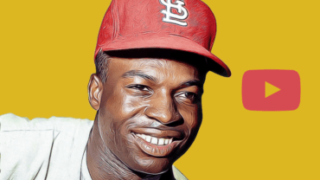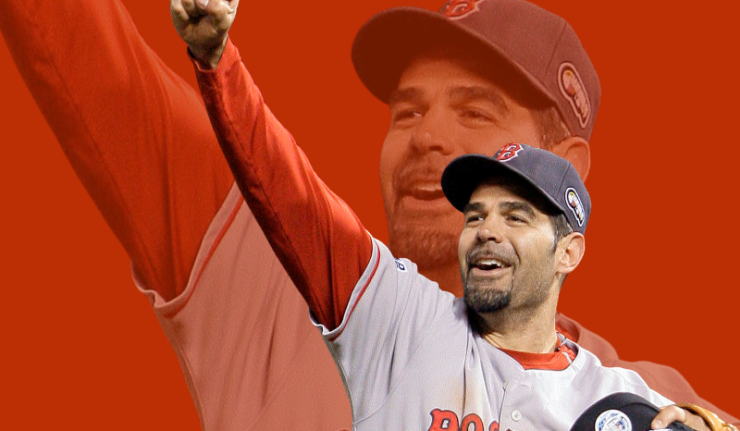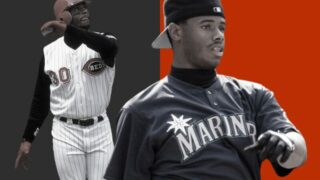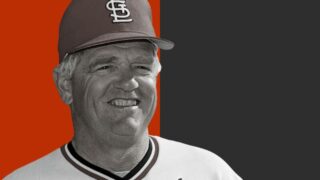Mike Lowell’s father was a pitcher, and a very good one. Carl Lowell was born in California, but his family moved to Cuba when he was a boy, and he had many older relatives who were still on the island when Fidel Castro and the revolutionaries seized control. His family bolted for Puerto Rico, and in 1971, Carl pitched his way onto the Puerto Rican national team. In the Caribbean World Series of Baseball tournament he defeated the Cuban national team. Following the victory, Castro wanted to meet the Puerto Rican players, but Lowell stayed on the team bus and refused to shake hands or have a photo taken with the Cuban dictator.
Carl Lowell was a talented enough pitcher that he was elected to the Puerto Rico Sports Hall of Fame, and his son Mike, who was born in Puerto Rico in 1974, has joined him in that honor. Mike was coached by Carl in Little League in Miami, where the family relocated from Puerto Rico. His father taught him the importance of attitude on the diamond. “He was big on the mental side of the game,” Mike told the Boston Globe years later, “I remember him telling me, ‘If you want to drive in the run, you’ve got to be the guy who wants it.’”
Lowell wanted to be “the guy” a lot: he drove in 90 runs five times, topping the 100-RBI mark three times in a 13-year career. He earned a lot of accolades and hardware: a Gold Glove, Silver Slugger, and four selections to the All-Star team. In 2003 he was the cleanup man for the Florida Marlins when they won the World Series.
The 2003 World Series title was sweet for Mike because it came against the team that gave up on him. Drafted by the White Sox out of high school, Lowell elected to attend Florida International University, and played three seasons, maturing physically. The Yankees picked him in the 20th round of the MLB Draft in 1995 and lured Lowell to the pro ranks with a $20,000 signing bonus plus tuition for his final classes at FIU. At that time he was a shortstop.
The Yankees needed a catcher of the future and wanted Lowell to be that man, switching him to that position. But it soon became clear that digging fastballs out of the dirt wasn’t for Lowell. He was moved to third base, but threw a lot of baseballs wide of his first baseman initially. Still, his bat was so promising (30 homers between Double-A and Triple-A in his third professional season), that the Yankees wanted to see if he could be a big leaguer. Lowell saw action in eight games in the last month of the 1998 season, the year the Yanks won a then-AL record 114 games. But that fall, Scott Brosius had a great postseason, and George Steinbrenner locked the third baseman up for three more years. Young Mike Lowell was expendable.
The Yankees traded Lowell to the Marlins in February of 1999, for three pitching prospects. The transaction barely registered acknowledgment in the New York papers. No one really knew who Mike Lowell was. Even people in the Yankee front office ignored the deal, basking in the glow of their recent World Series title.
Bur Marlins general manager Dave Dombrowski knew who Lowell was, and he liked him a lot. Dombrowski had lots of friendly eyes in Miami, people who kept an eye out for good ballplayers. Going back to his high school days, Lowell’s name was often sliding across Dombrowski’s desk, and now he was in his clutches. “He has a chance to be a premium third baseman for years to come,” Dombrowski said at the time.
If there’s one thing you don’t want to do if you’re a baseball executive, it’s to enter into a trade with Dave Dombrowski. How prescient did the Marlins architect turn out to be? Lowell showed his courage immediately, and in ways no one could have anticipated. In one of his first physicals for the Marlins, Lowell was diagnosed with testicular cancer. He underwent a successful operation, but lost weight and missed the first few months of his first season with the Marlins. He still managed to hit 12 homers in 97 games, and in the winter he was presented the Tony Conigliaro Award, which is given annually to a player who “overcomes adversity through spirit, determination and courage.”
In six full seasons in Florida, Lowell averaged 38 doubles, 22 homers, 88 RBIs, and a .273 average. He missed most of the last month of the 2003 season with a fracture in his left hand, but Lowell was back in the lineup for the playoff run. In Game One of the NL Championship Series against the Cubs in Wrigley Field, he hit a home run to deep center field in the 11th inning that proved to be the game-winner. It was his most satisfying moment in baseball. In Game Five of the World Series his two-run single was the winning margin against the Yankees.
Lowell was beloved in Miami and became one of the few players the team signed to a long-term deal, inking him to a four-year, $32 million contract a few weeks after the World Series celebration. He played two years of that contract for the Fish before being dealt to Boston in the 2005 off-season.
The Boston clubhouse was much different than Lowell was used to, but he fit in wonderfully with the crazies in New England. In his second season as a member of the Red Sox, Lowell drove in 120 runs and for the second time he was the cleanup hitter on a championship team.
Lowell’s 2007 postseason performance is often overlooked, but it was remarkable. He drove in at least one run in 10 of the 14 games Boston played that October. In the Fall Classic against Colorado, Lowell broke a tie in Game Two with a run-scoring double, drove in two runs in Game Three, and in Game Four, he smacked a home run in the seventh inning that stretched Boston’s lead to 3-0. Nine outs later the Sox were champions. Lowell was named World Series Most Valuable Player, and relished his home run in the clincher.
“This was the moment I had yearned for ever since that car ride with Dad,” Lowell wrote in his memoir of that 2007 season. “To be on the big stage at the big moment. It was also the culmination of years of what I call my visualizations.”
How much did Boston fans fall in love with Mike Lowell? During the 2007 World Series celebration parade in the streets of the city, a fan handed a sign to catcher Jason Varitek that read “RE-SIGN LOWELL.” The Sox did, and Lowell finished his career in a Red Sox uniform, receiving thunderous applause nearly every time he came to the plate at Fenway Park.




